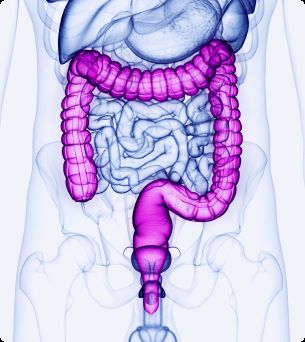Irritable Bowel Syndrome (IBS) is a common digestive disorder that can significantly disrupt daily life. People with IBS often experience uncomfortable and painful symptoms that range from mild to severe intestinal complaints. Although the exact cause of IBS is unknown, there are ways to calm the bowels and manage the symptoms.

What is irritable bowel syndrome?
Irritable Bowel Syndrome (IBS), also known as a spastic colon, is a chronic condition of the digestive system characterized by restless bowels. The symptoms vary greatly but typically include abdominal pain, cramps, and bowel issues such as diarrhea or constipation. A spastic colon refers to the increased sensitivity and irregular contractions of the bowel muscles, which are characteristic of IBS.


How does irritable bowel syndrome develop?
Although the exact cause is unknown, it is believed that a combination of factors contributes to the development of IBS. These include a disruption in the communication between the brain and the gut, changes in the microbiome, and hypersensitivity of the intestinal wall. In addition, stress and diet may also play a role in the onset of IBS.
What are the causes of IBS?
The exact cause of IBS is not fully understood, but there are several factors that can increase the likelihood of developing IBS:
- Genetics: People with a family history of IBS, those who have had a gut infection, and those who suffer from chronic stress are at higher risk of developing IBS.
- Stress: Emotional stress can worsen IBS symptoms.
- Diet: Certain foods, such as high-fat meals or foods rich in FODMAPs, can upset the gut.
- Microbiome Imbalance: A disrupted balance of gut bacteria plays a role in the development of IBS.



Types of IBS
IBS can occur in different forms, depending on the predominant symptoms:
- IBS with diarrhea (IBS-D): Characterized by frequent, watery stools.
- IBS with constipation (IBS-C): Marked by hard, irregular stools.
- IBS with mixed bowel habits (IBS-M): Alternating between diarrhea and constipation.
- Unspecified IBS (IBS-U): No dominant form of bowel movement.

Irritable bowel syndrome symptoms
The symptoms of IBS can vary greatly, but some common complaints include:
- Abdominal pain and cramps: Painful intestinal cramps ease after a bowel movement.
- Bloating: A swollen and full feeling in the abdomen.
- Altered bowel habits: This can range from diarrhea, and constipation, to alternating patterns.
- Gurgling stomach: Often audible, rumbling sounds from the abdomen.
- Excessive flatulence: Frequently passing gas, often accompanied by abdominal pain.


IBS can cause a wide range of sensations, including persistent abdominal pain, bloating, the feeling of incomplete evacuation after a bowel movement, and the frequent need to use the toilet. These symptoms can vary from day to day and are often worsened by stress or certain foods.



The connection between IBS and microbiome imbalance
There is a strong link between irritable bowel syndrome (IBS) and an imbalance in the gut microbiome, also known as dysbiosis. The microbiome, composed of trillions of bacteria, plays an essential role in digestion and overall health. In people with IBS, there is often a disruption in this microbiome, with a decrease in beneficial bacteria like Bifidobacteria and Lactobacilli, and an increase in potentially harmful bacteria. This imbalance can cause as abdominal pain, bloating, flatulence, and irregular bowel movements.
A disturbed microbiome can promote inflammation and weaken the gut barrier, leading to a “leaky gut,” a condition that can worsen IBS symptoms. Restoring the balance in the microbiome can help alleviate these symptoms. This can be achieved through dietary changes, such as a low-FODMAP diet, or through probiotics.
Easly’s microbiome test provides insights into the composition of your gut microbiome. This test identifies which beneficial bacteria are missing and which harmful bacteria are present. Based on this information, you can receive personalized advice on which probiotics and dietary changes are needed to restore your gut health and reduce IBS symptoms.


Easly’s microbiome test allows you to personalize your treatment and take targeted action. This not only helps restore balance in your gut but can also improve the quality of life for people with IBS.
What to do for irritable bowel syndrome?
If you suffer from Irritable Bowel Syndrome (IBS), there are several steps you can take to relieve your symptoms:
Microbiome test
Before adjusting your diet, it may be wise to take a microbiome test, such as the Easly Microbiome Test. This way, you’ll know exactly which beneficial bacteria are missing in your gut and can tailor your diet accordingly.
Dietary changes
low-FODMAP diet can be very effective for people with IBS. This diet is high in fiber but low in foods that trigger symptoms, such as high-fat meals and sugary products. It can help calm your gut. Additionally, it’s beneficial to eat small, regular meals and drink plenty of water to keep your bowels moving smoothly.
Eat more foods that calm your gut
- Fiber-rich foods: Whole grains, vegetables, and fruits can regulate your bowel movements.
- Yogurt and fermented products: These contain probiotics that support your microbiome.
- Ginger and mint: These are known for their soothing effects on the gut.
Avoid foods that can worsen your IBS symptoms
- High-fat meals: These can worsen your intestinal cramps and diarrhea.
- Foods high in FODMAPs: These are poorly digestible carbohydrates that can cause issues for many people with IBS.
- Sugary products: These can disrupt the balance of your gut bacteria and cause symptoms like bloating and flatulence.
Stress management
- Regular relaxation exercises and avoiding stressful situations can help reduce your IBS symptoms.




Probiotics
These beneficial bacteria can contribute to a healthy microbiome and help alleviate your IBS symptoms.
Doctor’s visit
Consult a doctor if you have persistent symptoms or your complaints do not improve despite diet and lifestyle changes.
Keeping a diary
It can be helpful to keep a journal of your diet and symptoms so you can identify patterns and avoid trigger foods.
Exercise and sufficient sleep
These factors can contribute to improved gut health and help reduce your IBS symptoms.



By following these steps, you can better manage your symptoms and support your gut health.
Conclusion
Irritable Bowel Syndrome (IBS) can have a significant impact on your daily life, but by understanding its causes and symptoms, you can take steps to calm your gut. Adjusting your diet, such as following a low-FODMAP diet, can help reduce IBS symptoms. Additionally, probiotics, stress management, and regular exercise can contribute to better gut health. It is important to take your symptoms seriously and, if necessary, consult a doctor to find an appropriate treatment. By paying attention to your diet and lifestyle, you can significantly reduce the impact of IBS and improve your quality of life.







